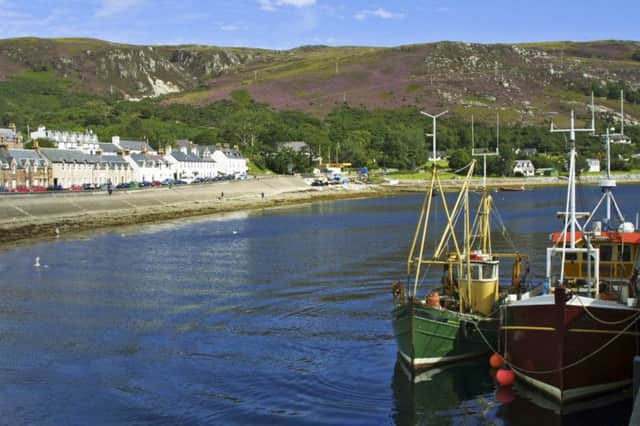Box clever to land our thriving industry


When visiting any one of our picturesque fishing harbours dotted around the coast it is, perhaps, all too easy to forget the fundamental role that fishing plays in providing a nutritionally valuable, tasty and sustainable food resource.
Or to put it in another way, fishing is just as essential for ensuring the food security of the UK as is our farming industry. It is a pity that this fact is all too easily forgotten in the maelstrom of media coverage that has surrounded fishing in recent years. All too often the news headlines are dominated by doom and gloom fears of over-fishing and plummeting fish stocks.
Advertisement
Hide AdAdvertisement
Hide AdWhile over-fishing is still an issue to be resolved in some other parts of the world, happily this is not the case around our shores. Indeed, there has been a quite remarkable sea-change in our fisheries since the turn of the millennium. According to the respected independent scientific body, the International Council for the Exploration of the Sea (ICES), fishing pressure in the north-east Atlantic (or the amount of fish mortality caused by fishing) is now at its lowest level in more than 50 years.
This has been achieved through a combination of measures, including the decommissioning of fishing boats, the adoption of technical measures in nets to reduce unwanted bycatch and observing real-time area fishing closures to protect spawning and juvenile fish. There has also been close co-operation between fishermen and scientists on stock assessments and conservation, along with the adoption of long-term management plans for our fisheries. In short, every commercially viable fish caught by the Scottish fleet is today subject to some kind of management control.
The result is that the majority of our stocks are now increasing in size, some dramatically so, such as northern hake and North Sea plaice. According to ICES, this successful reduction in fishing pressure for many stocks means that natural mortality (for example predation between species) is becoming the dominant source of mortality in the North Sea.
But what about the importance of fish as a source of food in all of this? This is undoubtedly something that is given little thought by some sections of the environmental lobby who have the luxury to shout loudly from the sidelines, pressing for ever-increasing restrictions on our fishing fleets without due consideration of the crucial role seafood plays in feeding the world. Or, for that matter, the economic importance of fishing to our coastal communities.
The recently published UN Report, Sustainable Fisheries and Aquaculture for Food Security and Nutrition, highlights this paucity of thought on the importance of our fisheries. It states: “Limited attention has been given so far to fish as a key element in food security and nutrition strategies at national level and in wider development discussions and interventions. Specialist fisheries debates have concentrated predominantly on questions of biological sustainability and on the economic efficiency of fisheries, neglecting issues linked to their contribution to reducing hunger and malnutrition and to supporting livelihoods”.
The recent FAO State of World Fisheries and Aquaculture Report (Sofia) 2014 underlines the importance of our fisheries and aquaculture in quite startling fashion. Fish now accounts for almost 17 per cent of the global population’s intake of protein – in some coastal and island countries it can be much more. Just over 70 per cent of world fish stocks are being fished within biologically sustainable levels, with indications suggesting that this figure is gradually improving. When managed in the right way, fishing is a low-carbon method of supplying a much sought-after source of renewable protein.
It is inevitable that fishing will have some kind of environmental impact – every form of food production does – but it is all a case of finding an acceptable balance, as is the case with agriculture in our countryside. Of course, it is vital that our seas are looked after and that vulnerable marine species and habitats are protected – the future of mankind depends upon it – but so, too, does it depend upon the sustainable harvesting of seafood.
So, despite the apocryphal calls from the doomsters, there is in fact a good news story to tell about our fishing industry, one of recovering stocks and the vital role fisheries play in supplying a renewable food resource. Let us hope that the strategic importance of fishing continues to be recognised at both EU and national governmental level.
Advertisement
Hide AdAdvertisement
Hide AdIt would be a tragedy for us all if our vital industry were to be destroyed by ill-conceived restrictions and management measures that fail to recognise that fishing helps to feed the world.
• Bertie Armstrong is chief executive of the Scottish Fishermen’s Federation, www.sff.co.uk
SEE ALSO